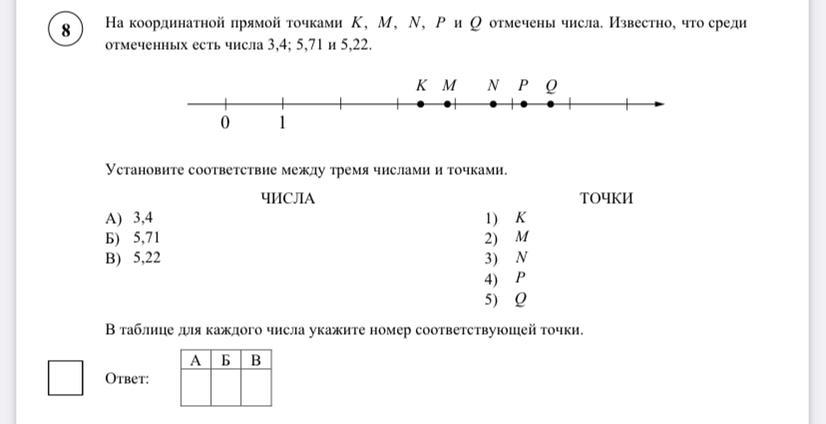Предмет: Математика,
автор: Ksyusha480
Помогите пожалуйста дам 15 баллов
Приложения:

Ответы
Автор ответа:
1
Ответ:
А Б В
1(K) 5(Q) 4(P)
А Б В
1(K) 5(Q) 4(P)
Ksyusha480:
Спасибо большое,дай бог здоровья
Автор ответа:
1
А1
Б5
В4
3,4-К
5,71-Q
5,22-P
Б5
В4
3,4-К
5,71-Q
5,22-P
Похожие вопросы
Предмет: Русский язык,
автор: sasha23ru
Предмет: Русский язык,
автор: суперпумер
Предмет: Технология,
автор: тамерлан64
Предмет: Химия,
автор: kate234129